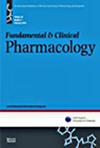Update on monkeypox virus infection: Focusing current treatment and prevention approaches
Abstract
Background
While the world is still facing the global pandemic COVID-19, another zoonosis monkeypox (Mpox) has emerged posing a great threat to society. Insight into the pathogenesis, symptoms, and management strategies will aid in the development of potent therapeutics for the treatment of monkeypox virus infection.
Objectives
To get insight into the current treatment and prevention strategies will aid in effectively coping with the disease.
Methods
For obtaining information regarding the ongoing treatment and prevention strategies and the drugs under pipeline, we referred to Google Scholar, Pub Med, Pub Chem, and WHO official site.
Results
There are a few drugs that came out to be effective for the treatment of Mpox. Tecovirimat acts by inhibiting viral replication and viral wrapping. Another drug is cidofovir, which hinders the activity of viral DNA polymerase but has the drawback of nephrotoxicity. To overcome this, a conjugate of cidofovir is being used—known as brincidofovir—which has a similar mechanism as cidofovir but lesser toxicity. Ribavirin acts via inhibiting inosine monophosphate dehydrogenase (IMPDPH) thus disrupting viral translation. It also interferes with helicase activity. Tiazofurin, Adenosine N1 oxide, and HPMPA have shown efficacy in in-vitro studies by inhibiting IMPDH, DNA polymerase, and viral mRNA translation respectively. In-silico studies have proven the effect of nilotinib, simeprevir, and dihydroergotamine for Mpox treatment. They have shown binding affinity for proteins required for the growth and release of MPXV. Vaccines have also been employed for the prevention of Mpox, which includes JYNNEOS, ACAM2000, and VIGIV.
Conclusion
This review highlights the pathogenesis of the virus, disease manifestations, drugs, and vaccines that are being used and those under pipeline for the treatment and prevention of Mpox.

 求助内容:
求助内容: 应助结果提醒方式:
应助结果提醒方式:


